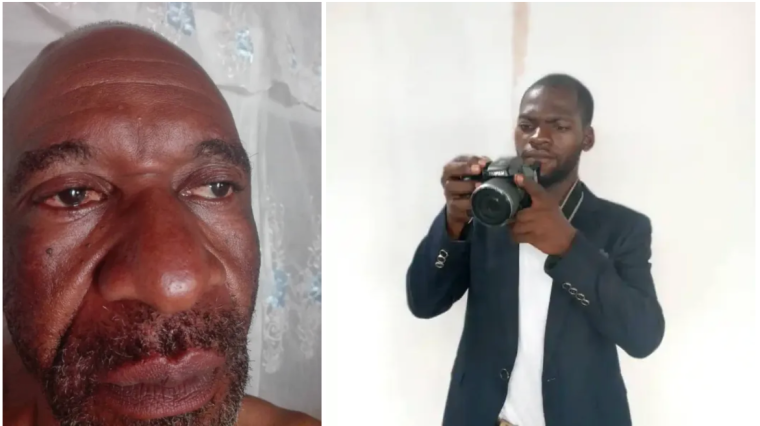Kinshasa, August 3, 2023—Politicians in the Democratic Republic of Congo and their supporters must respect journalists’ rights to report freely and safely in the lead-up to national elections on December 20, the Committee to Protect Journalists said Thursday.
At least seven journalists reporting on political candidates were assaulted in three separate incidents last week, according to news reports and three of the journalists who spoke to CPJ.
“Political leaders must set an example and ensure that the media can report freely and safely ahead of the DRC’s parliamentary and presidential elections,” said CPJ Program Coordinator Angela Quintal in Durban, South Africa. “The police must ensure that those who attack journalists are prosecuted, and presidential candidates across the political spectrum must set an example by cultivating tolerance and respect for a free press in the DRC.”
On July 25, Lich Nkele, the federal president of the Movement for the Liberation of the Congo (MLC), a party allied with President Felix Tshisekedi, and three MLC militants assaulted José Nkoso, director of the privately owned Radio Bomoko Mankanza, at his home in Mankanza town in northwestern Equateur province, according to Nkoso, who spoke to CPJ via messaging app.
Nkele’s phone appeared to be switched off when CPJ called to request comment and he did not respond to text messages.
Nkoso told CPJ that his assailants were angry because an activist interviewed on Radio Bomoko said many of their MLC candidates would lose in the polls. Nkoso said the men broke his windows and doors and beat him with sticks, causing severe pain in his back, head and left ankle.
Rose Monkozo, deputy government administrator in Mankanza, told CPJ by phone on July 30 that the four alleged assailants were arrested but Nkele had since been released. She declined to give further details. Mankanza judicial police officer Patrick Zèle told CPJ that he could not comment on an ongoing investigation.
In the second incident on Saturday, July 29, Frank Kalonji, a reporter with the private news website Actu7.cd, told CPJ that an unknown number of supporters of leading opposition presidential candidate Martin Fayulu—who claimed to have won DRC’s 2018 presidential elections but lost a court case challenging the result—slapped and manhandled him and snatched his phone to prevent him reporting on their Engagement for Citizenship and Development (ECIDé) party’s rally in the capital, Kinshasa.
The journalist told CPJ that the men accused him of being a spy for the ruling Union for Democracy and Social Progress party. The assault was also reported by his own media outlet.
Kalonji said another ECIDé member stopped the attack and returned his phone. ECIDé secretary general Devos Kitoko did not answer CPJ’s phone calls to request comment.
Government spokesperson Patrick Muyaya also did not answer CPJ’s calls and texts seeking comment.
On the same day, opposition presidential candidate Delly Sesanga of the Envol party and five reporters were assaulted while trying to attend a rally in Kananga, capital of Kasaï-Central province, according to one of the reporters, Elysée Odia of the private news site Yabisonews.cd, who spoke to CPJ via messaging app. Suspected ruling party supporters set tires alight, barricaded the roads and threw stones to prevent the group from reaching the venue, according to Odia and news reports.
Sesanga and three of the journalists—Odia, Didier Kebongo of the private daily newspaper Forum des As, Trésor Kalafayi of Congo Web TV’s programme Plateau des Vérités—sustained minor head injuries, according to Odia and 24 News Agency.
Jean-Pierre Kayembe of the private channel Non à la balkanisation TV and Danou Kefula of the private television station Canal Kin were unhurt, Odia added.
The governor of Kasai-Central province, John Kabeya Shikayi, did not answer CPJ’s phone calls. Government spokesperson Muyaya on Monday condemned the attack on Sesanga and said those responsible for the violence would be brought to justice, according to the news site Actualite.cd.
CPJ has repeatedly documented how journalists in the DRC have been arrested, accused of alleged crimes—including defamation and sharing false information—and criminally prosecuted in connection with their work. The DRC was holding two journalists behind bars when CPJ conducted its latest annual worldwide census of imprisoned journalists on December 1, 2022.
